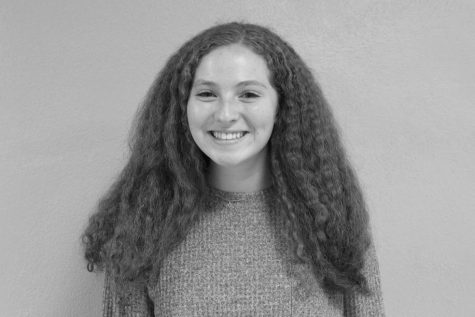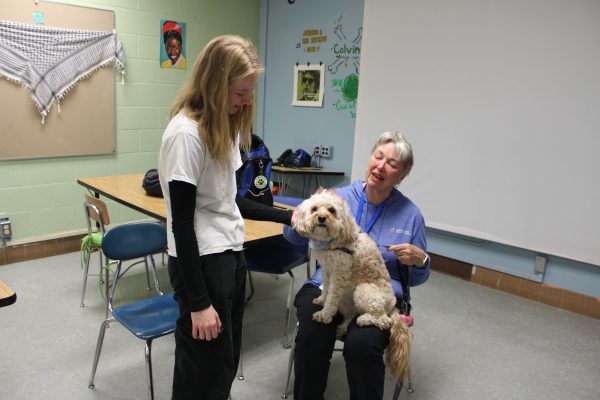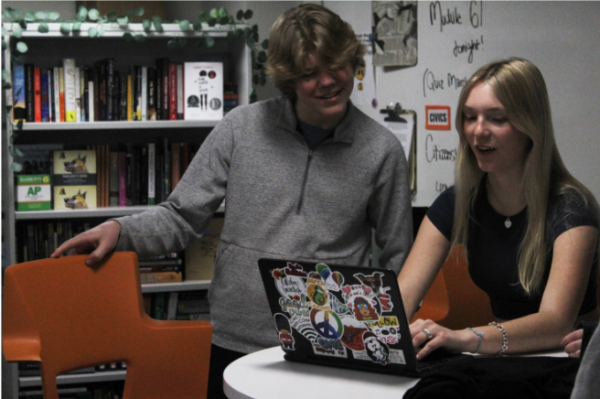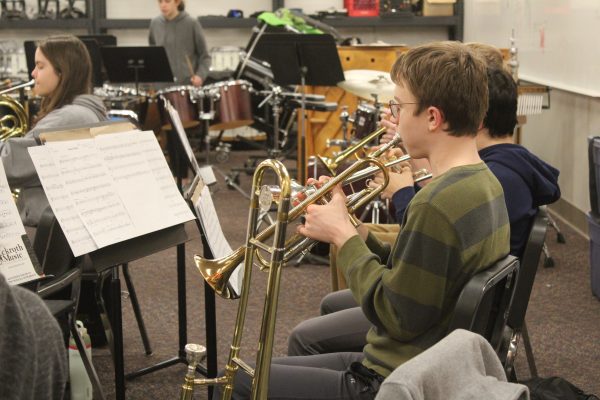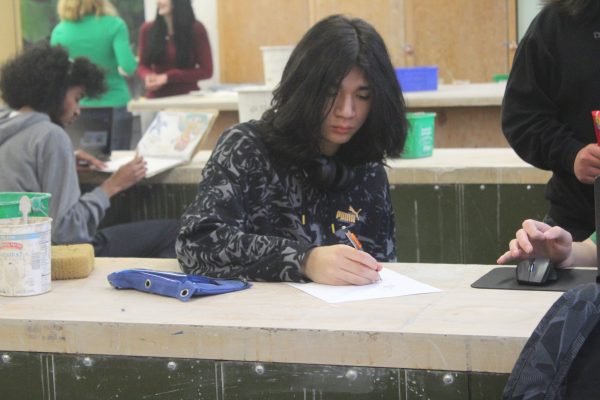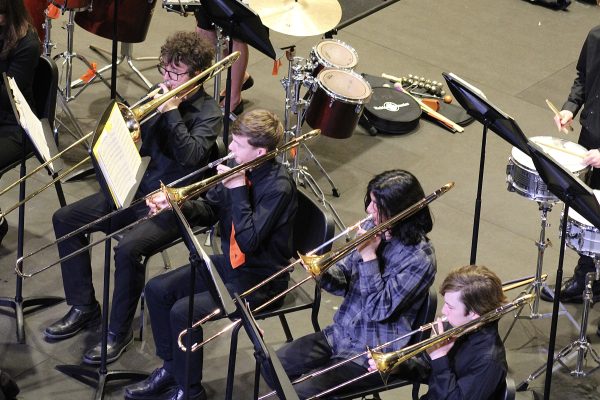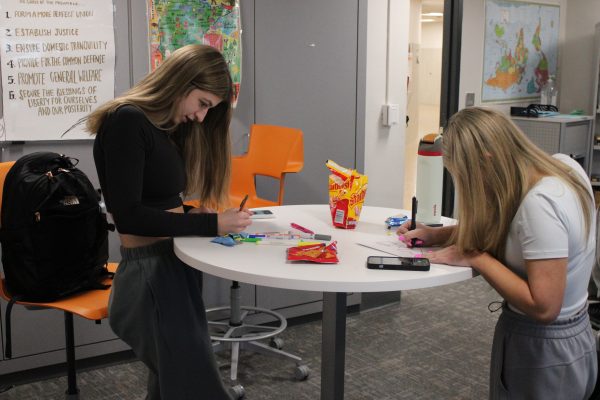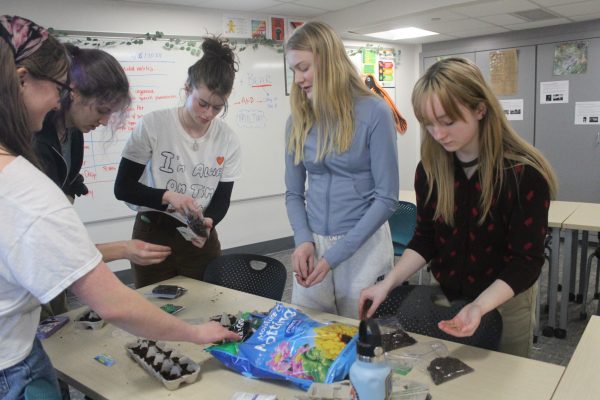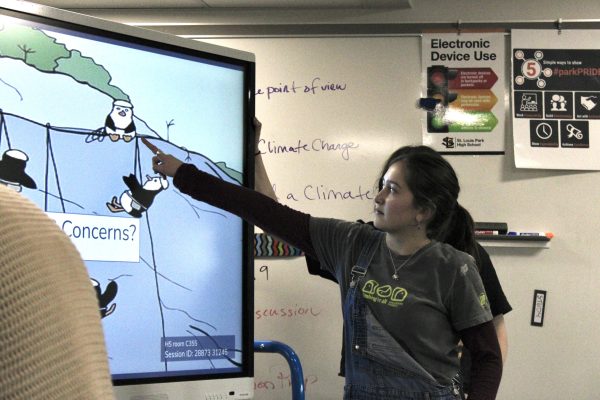Feminism club discusses gender disparities
Diverse group connected through issues
Seniors Patrick Djerf and Maddie Lind discuss the gender inequality in the University of Minnesota Talented Youth Mathematics Program during the Feminism club meeting Feb. 13. The club discussed how women are outnumbered in high academic classes and in STEM.
February 15, 2020
Feminism club president and senior Ally Feller said the meeting Feb. 13 dealt with issues regarding the presence of men and women in different settings.
“We talked about women and STEM and imposter syndrome, which mostly pertains to women and minorities in STEM fields where they feel like they don’t belong there, they’re not good enough to be in that field where they are. Whereas men and white men in particular usually don’t feel that,” Feller said.
According to senior Lauren Schmelzer, the discussion brought up prevalent issues in the school and their effects on the students.
“It was a good conversation and I feel like I definitely learned more about stereotypes and how they affect us,” Schmelzer said. “It gave us all an opportunity to connect with our classes right now and let us see how they are unbalanced.”
Feminism club adviser Sara Peterson said not only are these topics important for students to be discussing, but the diverse group also adds to the discussion.
“The discussions that they have are unique for high school kids to be having at this time and I think it’s unique that it has upperclassmen and then there’s lower classmen that will show up at times,” Peterson said. “It’s unique in that there are females that are participating in it and there are oftentimes males that will come in.”
Schmelzer said the diverse group of students involved in Feminism club benefits the perspective and connection.
“It’s really good to talk about these different subjects that may be hard for other people,” Schmelzer said. “Just in general, being able to talk because we have people of different races, different genders that come to the club and seeing the different perspectives really helps us all connect with each other.”
Feller said it is important to examine issues within society so people do not feel like they are alone.
“It’s good to talk about these things because a lot of people don’t realize that other people also feel the same way as they do and that it pertains to them,” Feller said. “We talked about how in a lot of our classes, like the higher level classes like IB and AP classes, they’re mostly men in them, and mostly white men also. So that’s kind of interesting why that happens.”
We have people of different races, different genders that come to the club and seeing the different perspectives really helps us all connect with each other.
— Sarah Peterson
According to Peterson, the way in which Feminism club approaches topics and discussions is important in making the environment a safe place to explore ideas.
“It’s usually really open so that I think they feel freedom to discuss topics that may not be the easiest to have discussions about,” Peterson said. “And they do it in a really respectful and meaningful way for them.”
Feminism club meetings are every other Thursday 8 a.m. in room A315.




